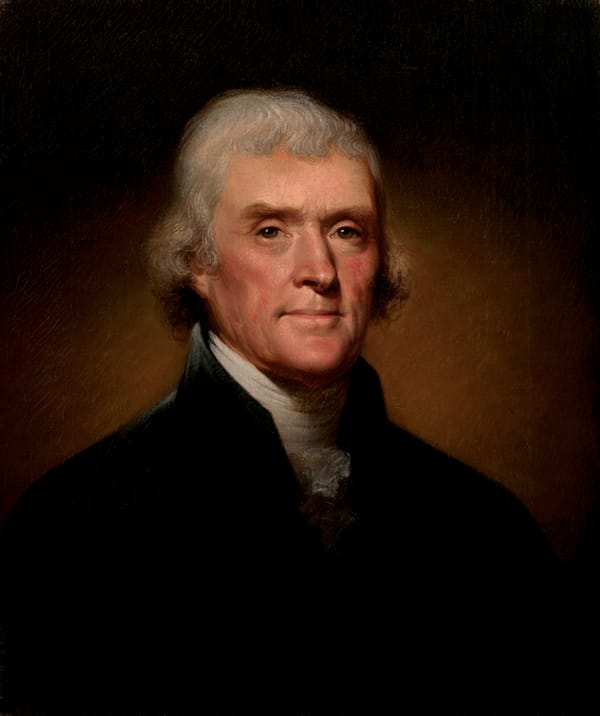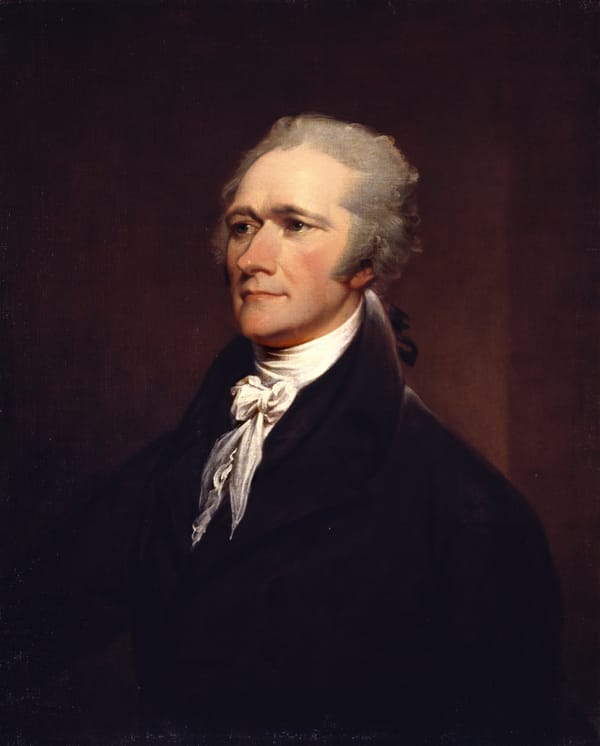The War Powers Act Is Not Carte Blanche
So, Trump just bombed Iran. Apparently. He said he did anyway, which technically does make it less likely to be true, but I think we have independent confirmation.
There is about to be a big debate about whether this was legal for him to do. Congress did not pass any specific authorization for the strikes, the 2001 and 2002 authorizations for the use of military force (AUMFs) against, respectively, the people who carried out 9/11 and Saddam Hussein's Iraq, do not and cannot be made to cover this. Do not believe anyone who tries to tell you otherwise. They are capacious, particularly the 2001 one, but not that capacious. We used the 2001 AUMF against ISIS, for example, on the theory that it was a splinter group of al-Qaeda. It just has nothing to do with Iran.
That means that Trump is likely to claim either inherent authority under Article II or statutory authority under the War Powers Act of 1973. Jamelle Bouie reports that people on Tiktok are already bringing up the War Powers Act theory. This theory annoys me, not least because it has a kind of surface plausibility, so I want to just rant a little bit about why it's wrong, why it has to be wrong, you might say.
Before getting into the specifics of the War Powers Act, it's helpful to have a little background on the structure of war powers under the Constitution. I talked about that earlier in the year when it seemed like we might be invading Greenland. In that piece, I also linked to an essay by Philip Bobbitt that provides my favorite explanation of constitutional war powers. If you aren't already familiar, go check out one or both.
Okay. So, the War Powers Act (formally not an act of Congress, just a joint resolution) was passed (over President Nixon's veto) in 1973. It was, as you might be able to infer from that date, a direct response to the Vietnam War. By its terms, it imposes a number of limits and obligations that the president must observe and fulfill whenever the American military commences hostilities. In general, the Act says that the president must consult with Congress, both prior to the commencement of hostilities if possible and regularly thereafter.
More specifically, whenever a military operation begins without a congressional declaration of war, the president must deliver a report to Congress within 48 hours detailing (1) the reasons why the military was deployed; (2) the legal authority under which the deployment took place; and (3) the estimated scope and duration of hostilities. So long as hostilities continue, the president must submit further reports to Congress at least every six months.
Once such a report is delivered, the Act starts a sixty-day clock. If, at the end of those sixty days, Congress has neither authorized the military action nor extended the sixty-day window (and is not physically unable to meet because of the war), then the president must "terminate" the military engagement. Congress is not required to act in order to disapprove the action, though it can do so via concurrent resolution if it wishes to act before the sixty-day clock expires.
Now, the first thing to say about the War Powers Act is that the whole concept is kind of strange. Surely, you might think, the Constitution itself apportions the various war powers among the branches. Why, then, can a mere act of Congress (in fact only a joint resolution) alter that scheme? It's very tempting, then, to just think that the WPA is an obvious nullity.
But if Bobbitt is right about the nature of the constitutional scheme, then I don't think that's so clear. Making war, after all, is on this view a cooperative endeavor by Congress and the president working together. And if that's right, then a statement of when exactly Congress is in cooperation with the president is hardly a nullity!
And now we can start to see the problem. Congress, as Bobbitt notes, has given the president a whole bunch of toys. And then it passed a law (joint resolution) saying that the president may not use those toys in XYZ circumstances. It's somewhat natural, then, to think that, by implication, the president may use those toys outside of XYZ circumstances: that, moreover, Congress has given its permission for such use.
Indeed you might think that this is the only way to interpret the War Powers Act as anything other than a nullity: for surely, whenever the president goes to war without congressional authorization, it must either be the case that this was already illegal in the absence of the WPA or that the president has inherent Article II authority that Congress cannot interfere with.
Except... something's off with this picture, right? The Act was passed in response to Vietnam. Specifically in response to the secret bombing of Cambodia. It reflected that Congress was not happy that President Nixon had done secret military adventuring without the consent, or indeed the knowledge, of Congress. But the view I just sketched would make the Act into a carte blanche congressional authorization for the president to do any military adventuring at all for sixty days. That just can't be right.
And indeed, I think it's pretty clear on reviewing the text of the Act that this isn't right. For one thing, the whole thing is framed as imposing limits. Negative inference can be a real thing, but it would be pretty perverse to take "we expressly deny permission in these circumstances" to mean "we grant it elsewise." But there's even more of a smoking gun, it turns out! Recall that one of the things the president's report to Congress upon the commencement of hostilities must detail is "the constitutional and legislative authority under which such introduction [of forces] took place."
Now if the War Powers Act itself were a carte blanche source of authority to do any and all military adventuring within sixty days, this would be unnecessary! It seems crystal clear, therefore, that the Act does not understand itself to be a freestanding source of authorization at all. Whatever rules and restrictions it imposes on the president are in addition to the general requirement that there be some legal basis for any military action. If the president's report gave only a shrug emoji as the source of legal authority, then the president would plainly have acted illegally, notwithstanding that he had submitted the report required by the WPA. I don't really think there's any subtlety to it.
But do we not then have a problem, for the reasons I outlined above? I just said that, in order to take lawful military action during the sixty-day WPA clock, the president must have some kind of authorization other than the WPA itself. But if that is so, then how can the requirement that hostilities be terminated when the clock runs out be efficacious?
This is not really a hard problem if the authority is statutory. Which it might be! It is plausible, for instance, that treaty obligations can create domestic legal authority for military action even in the absence of a specific action by Congress. The War Powers Act, then, says that this can only last for sixty days. Which it can do; in general treaties are not of higher status than acts of Congress. (This is, of course, a Whole Topic unto itself, which I will eventually cover in Constitutional Perspectives. Eventually.) There might be other laws that authorize military action in certain defined circumstances; again, we can easily read the WPA as appending "but only for sixty days" onto any such law.
Ah, but what if the authority is constitutional in nature? Well for one thing, we've already shown that the WPA (so understood) is not a nullity. But also, the constitutional case is not so clear as you might think. Recall Justice Robert Jackson's framework for questions of presidential power, articulated in the Youngstown Steel Seizure Case:
- When the President acts pursuant to an express or implied authorization of Congress, his authority is at its maximum, for it includes all that he possesses in his own right plus all that Congress can delegate. In these circumstances, and in these only, may he be said (for what it may be worth) to personify the federal sovereignty. If his act is held unconstitutional under these circumstances, it usually means that the Federal Government, as an undivided whole, lacks power.
- When the President acts in absence of either a congressional grant or denial of authority, he can only rely upon his own independent powers, but there is a zone of twilight in which he and Congress may have concurrent authority, or in which its distribution is uncertain.
- When the President takes measures incompatible with the expressed or implied will of Congress, his power is at its lowest ebb, for then he can rely only upon his own constitutional powers minus any constitutional powers of Congress over the matter. Courts can sustain exclusive presidential control in such a case only by disabling the Congress from acting upon the subject.
A point here that is not always appreciated is that it is possible for the president to have independent authority to do a thing, and yet Congress would have the power to interfere with that thing. It is possible, therefore, for the president to have constitutional authority to make war in a particular circumstance in the absence of the War Powers Act or any other relevant congressional statement, and yet for it to be constitutional for the WPA to require that war to halt after sixty days if Congress has not blessed it. Of course there may be cases where the president's authority is not subject to override by Congress, at least in theory (though Congress's general control over the organization of the military may make that practically unlikely). Interestingly it seems that the authors of the War Powers Act were mindful of the Youngstown framework, and understood themselves precisely to be legislating for the "zone of twilight" situation. (So Wikipedia tells me, anyway; I tried to verify but wasn't able to find the committee report in question.)
To sum it all up: the War Powers Act does not speak to the question of whether any military action undertaken by the president is legally authorized. It does not itself provide any positive authorization. Insofar as the president is complying with its requirements, we are in something like the "zone of twilight" (with the modification that the president may also rely on other sources of statutory authority; the twilight is only vis-a-vis the WPA as such). Where the president is not in compliance with the WPA, either as to the reporting requirements or, more importantly, as to the sixty day clock, then we are in zone three, and the president's power is at its lowest ebb.
This is, it seems to me, an entirely pleasing construction of the law, one that both makes constitutional sense of all its parts and comports with the plain purpose of the Congress that enacted it.

